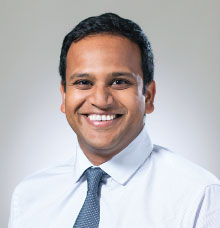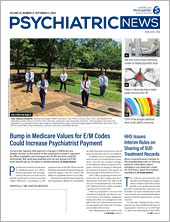Patients who have a nonfatal opioid overdose have an increased risk of dying in the days immediately afterward. Yet most patients do not receive potentially life-saving follow-up care even when they have health insurance that might cover it, a study in JAMA Network Open has revealed. Among the 6,451 commercially insured patients who had a nonfatal opioid overdose in the study, only 16.6% received follow-up treatment in the 90 days that followed.
To arrive at their findings, Austin S. Kilaru, M.D., M.S.H.P., an emergency physician at the University of Pennsylvania Perelman School of Medicine, and colleagues analyzed claims that were filed with a large commercial insurer from October 2011 through September 2016. They defined follow-up treatment as the presence of either a pharmacy claim for medication treatment for opioid use disorder (OUD) or a medical claim for outpatient or inpatient opioid treatment within 90 days of discharge from the emergency department. They also reviewed pharmacy and medical claims for the 90 days before the overdose to determine whether the patients had been receiving treatment for OUD.
Roughly 11% of those who had not received OUD treatment before their overdose received follow-up care, compared with 63% who were in treatment before their overdose. Among those who had not received treatment before their overdose, Black patients were half as likely to obtain follow-up care as white patients.
“The racial disparity was the biggest surprise,” Kilaru told Psychiatric News. “The fact that racial disparities persisted even in commercially insured patients suggests there is something at play here, whether it is a construct of structural racism or that opioid use disorder is underrecognized among Black patients. It’s a fruitful area for further investigation as to why this is.”
Patients who overdosed on prescription opioids were less likely to obtain follow-up care than those who overdosed on heroin. Although the study was not designed to tease out why, Kilaru has a few theories.
“Not everyone who has an overdose necessarily has an opioid use disorder. Some proportion of prescription overdoses may have been accidental, like an older person on several different medications may have accidentally taken two of the opioid,” he said. “It’s still important to get follow-up care even if the overdose is accidental to ensure that it doesn’t happen again.”
He added that people who use heroin or other injection drugs may be more familiar with resources for getting treatment than those who abuse prescription medications.
“They may have more interaction with the health care system through prior overdoses or knowing where to get resources, such as needle exchanges,” he said. Another possibility is that people who abuse prescription pills may be undertreated because they are not readily recognized as having an illness.
The low rate of follow-up care overall speaks to gaps in the health care system, Kilaru said.
“We don’t have a very coordinated system of care. We often regard emergency department visits as a one-off encounter and feel powerless to help that patient get to the next place they need to go,” he said. “It’s incumbent on the medical system to provide every patient with every opportunity to get care after an overdose, whether it’s access to crisis or peer counseling, a recovery specialist, initiating medication treatment in the emergency department, or even giving a disposable phone to someone who doesn’t have a phone so they can call and make appointments.”
Psychiatrists can be invaluable to follow-up care, Kilaru said.
“Many of these patients have psychiatric comorbidities and we’re treating them very frequently, which suggests that they are not already accessing psychiatric care,” he said. “I would encourage psychiatrists to partner with local emergency departments. There is a lot of potential to engage patients in high-quality outpatient care, but the connections [between psychiatrists and emergency departments] need to be made.”
This study was supported by the Leonard Davis Institute of Health Economics at the University of Pennsylvania. ■
“Incidence of Treatment for Opioid Use Disorder Following Nonfatal Overdose in Commercially Insured Patients” is posted
here.

